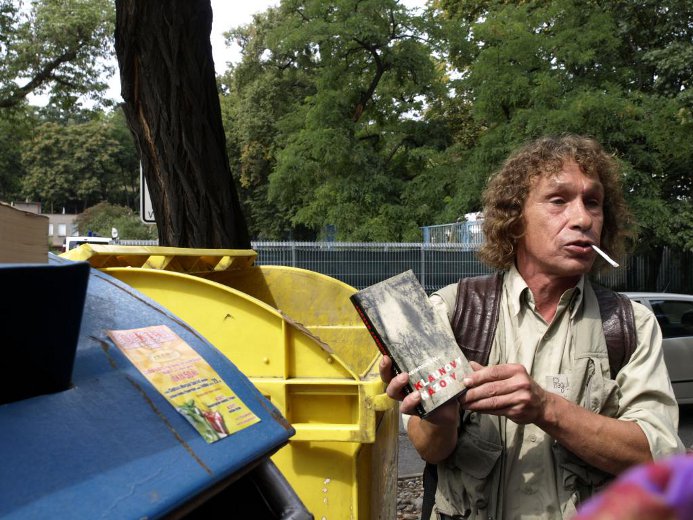To help the homeless rediscover their lost self-confidence, give them work and some income, and to give others an unusual experience: these are the goals of the Pragulic social organisation, founded last year by three students of the CU Faculty of Humanities. Initially offering unconventional guided tours of Prague by homeless people, Pragulic is now adding further projects to its programme. People can now experience for themselves an entire day on the street or take part in ‘homeless teambuilding’.
The massive interest, from foreign as well as Czech tourists, in tours through the streets of Prague by people who have lived there has led to Pragulic recruiting five new guides to its team. “Tours have been expanded to include not only new people, but also new topics,” says Tereza Jurečková, one of the founders of the project.
Tereza founded Pragulic together with Ondřej Klügl and Katarína Chalupková (who was this year replaced by Jan Trybenekr, now a graduate of the Prague University of Economics) from the CU Department of Civil Society Studies, who wanted to start a project that would be of benefit to society. Their idea subsequently won the international Social Impact Award and the received base capital to start the organisation.
Every new Pragulic guide brings with them their own particular life story and a new tour route. Tourists can take a walk round Malá Strana with Ondra, who introduces them to the magic of street music, or go for a ride in a Prague rail bus with Robert, whose passion is railways, rather than music. Pragulic’s new guide, Zuzka, tells people about the hell of being addicted to hard drugs. Pepa shows participants Nový Svět through the eyes of the homeless, and Radka does tours for the whole family, including children.
After a successful first year, Pragulic is now also starting to offer other programmes alongside tours of Prague. One of these is the opportunity to experience for yourself 24 hours on the street, the only way to truly understand homelessness. “At the start you get clothes like those typically worn by homeless people, then you have to leave your mobile phones and other items behind and venture out onto the streets with one of our guides,” says Jan Trybenekr.
Another new project is ‘homeless teambuilding’, which is mainly aimed at managers and employees of various corporations. Participants take part in a ‘homeless pentathlon’, during which they learn things from marketing, sales, logistics, finance and human resources management, naturally from the point of view of people living on the street.
Aimed at the younger generation is the ‘Prague Homeless Challenge’, the object of which is to teach participants how to survive on the street, and give them a day-long insight into the lives of homeless people through unconventional activities and experiences.
All programmes offered by Pragulic are subject to payment. Part of the proceeds go towards the operation of the organisation itself, and part goes straight to the homeless people who work for Pragulic (the term ‘homeless’ is not, however, totally accurate, as most of the guides, while having lived on the street for some time, have the worst behind them and have a roof over their heads, at the very least in a shelter or similar.).
This idea of CU students also appealed to Austrian investor, and founder of a private foundation, Katharina Turnauer, who provided the Pragulic project with financial support, and particularly appreciates the fact that it “combines addressing a pressing social problem with entrepreneurial tools that allow it to be financially independent.” Achieving financial self-sufficiency is one of the goals of the organisers, and it precisely this that the students are learning at the Social Responsibility Department of the CU Department of Civil Society Studies.















